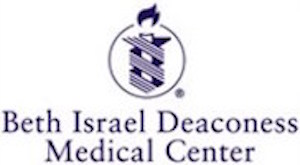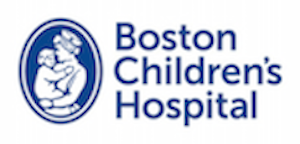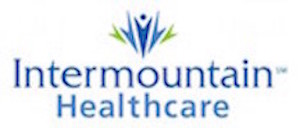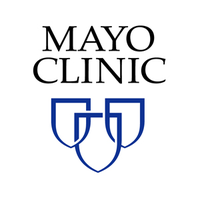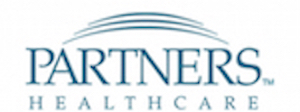Under the Precision Medicine Initiative, patients will require access to their healthcare information. The SMART platform, the Argonaut Project and other open APIs represent the most promising way to deliver this capability. Below, we’ve listed some of the leading healthcare organizations working to make data available through these protocols.
Implementing SMART / Argonaut APIs
Beth Israel Deaconess Medical Center
Beth Israel Deaconess Medical Center is a founding member of the Argonaut Project.
Website | John D. Halamka, MD, MS
See also: other APIs
Boston Children’s Hospital
The SMART Health IT Project at the Boston Children’s Hospital Computation Health Informatics Program developed and maintains the SMART standards and related open source tools. The SMART App Gallery offers developers and healthcare providers a way to connect apps to users. SMART is also one of the driving forces behind the Argonaut Project.
Website
See also: HealthKit / ResearchKit APIs
Duke Medicine
Duke Medicine is the first medical center to deploy a SMART-compatible app in a production setting within an Epic-based EHR. The organization has integrated other apps into its proof-of-concept environment and is currently working to add write-support as well as patient-facing authentication to support SMART apps in the patient portal.
Patient Facing: Future Support
Website | Ricky Bloomfield Jr, MD
See also: HealthKit / ResearchKit APIs
Geisinger
Geisinger developed a Rheumatology App alongside Epic, and later adapted it to run on the SMART platform. The app uses eleven FHIR resources to exchange clinical data in real-time and through SMART can interoperate with Epic, Cerner and AthenaHealth. Based on the success of this demonstration, Geisinger is currently beta-testing a commercial grade version of the app across multiple destination EHRs.
Hospital Corporation of America
HCA is working with the SMART Health IT team and TrialReach to develop and implement a cancer clinical trials matching app. Instead of manually sorting through hundreds of trials, this app will allow HCA’s Sarah Cannon nurse navigators to quickly identify a short list of trials that fit the patient’s profile – invaluable information for the patient and their oncologist.
Partners Healthcare
Partners is implementing the SMART API on top of the i2b2 data warehousing and analytics platform, using PCORnet’s Common Data Model. This API will facilitate development of SMART apps for care-providers and patients at Partners and potentially at over 140 other institutions that use i2b2.
Patient Facing: Yes
Trial Reach
TrialReach is working with Hospital Corporation of America (HCA) and the SMART Health IT team to develop and implement a cancer clinical trials matching app. Instead of manually sorting through hundreds of trials, this app will allow HCA’s Sarah Cannon nurse navigators to quickly identify a short list of trials that fit the patient’s profile – invaluable information for the patient and their oncologist.
Implementing HealthKit / ResearchKit APIs
Boston Children’s Hospital
The C-Tracker Project at the Boston Children’s Hospital Computation Health Informatics Program combines SMART, i2b2, and ResearchKit APIs to enable people with hepatitis C to use their smartphones to report information about themselves that may improve how hepatitis C is treated.
Patient Facing: Yes
Website
See also: Smart / Argonaut APIs
Duke Medicine
Duke Medicine enabled HealthKit in its production environment in September 2014. The technology has been used both clinically as well as part of several IRB-approved studies.
In collaboration with Duke University, Duke Medicine developed Autism & Beyond, released in October 2015. The study was designed to test the feasibility of real-time video analysis at home that may one day be used to screen for conditions such as autism.
Patient Facing: Yes
Website | Ricky Bloomfield Jr, MD
See also: Smart / Argonaut APIs
Ochsner Health System
Ochsner Health System is using HealthKit to create a more comprehensive picture of ongoing patient health, and provide relevant information for preventive and chronic care management. Pilot programs in heart failure and hypertension have collected data including body weights and blood pressure measurements from patients’ homes, reaching over 500 patients across the system. This has led to significant reductions in hospitalizations as well as improved blood pressure control that will lead to reductions in heart attack, stroke and kidney failure.
Patient Facing: Yes
Stanford Children’s Hospital
Stanford Children’s Hospital has created an open source blood glucose monitoring analytics platform that uses the Epic API and HealthKit to improve our understanding of diabetes and individual trends over time. The team works with Dexcom blood glucose monitoring device, which has an app that sends data through HealthKit into MyChart and is accessible to the provider and the patient.
Patient Facing: Yes
Implementing Other APIs
Beth Israel Deaconess Medical Center
BIDMC created BIDMC@Home, a native iOS app, to link devices in the home, smartphones, and the BIDMC electronic health record. The application incorporates APIs for documents, images, and device data. At present, the APIs are internal, however, they may eventually be exposed to trusted third parties.
Patient Facing: Yes
Website | John D. Halamka, MD, MS
See also: Smart / Argonaut APIs
St. Joseph Health
St. Joseph Health and its partner Hart, along with EHR vendors Allscripts and Meditech, are making patients’ data available to them through the HartOS API, facilitating the creation of tools using health data to drive shared decision making, individualized treatment plans, and better outcomes.
Patient Facing: Yes
Yale New Haven Health System
Yale New Haven Health’s Smilow Cancer Hospital is working with PatientBank to aggregate data into a portal prior to patients’ initial oncology visit. Yale New Haven Health is also working with Hugo to pull the full patient record via Epic APIs and enable patients review their data, share it with another physician for a second opinion and donate it for clinical research.
Patient Facing: Yes

